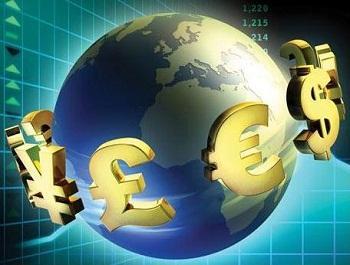Some of the events that marked 2016 — reality TV show host Donald Trump’s victory in the presidential election, the United Kingdom’s vote in favor of leaving the European Union — were a nightmare for prognosticators everywhere. Despite that, I am now ready to confidently predict a series of major events that will shape 2017.
On the sports front, the Cleveland Cavaliers will repeat as NBA champions, tempting LeBron James to expedite his planned 2024 presidential bid and run in 2020. Deflategate, on the other hand, will not make a comeback: while footballs will continue to lose pressure in cold weather, the NFL will no longer pretend to care.
Elections have consequences, and in 2017 Republicans will repeal the Affordable Care Act in some shape or form. In response, Romneycare will make an unexpected comeback in states like California and New York, as liberal states will set up Obamacare-style exchanges to serve the individual market. Individual mandates included!
The GOP’s other big economic-policy priority, tax reform, will both boost stock prices and increase the deficit. In response, Democrats will become the party concerned about the national debt. The parties will also swap positions on infrastructure spending, on trade agreements, and perhaps even on maternity leave.
Sharp partisan divisions will continue outside the realm of health care and tax policy as well. Think of the fights to be had involving social issues! Planned Parenthood will become the target of numerous bills of attainder, and Trump’s Supreme Court nominee will draw renewed attention to the constitutionality of straight-up abortion bans.
And while Republicans will come to term with gay marriage as a legal construct, they will continue to draw a sharp distinction between “religious freedom” and “freedom of religion.” The former will be used to refer to the freedom of business owners not to serve gay customers, a freedom embraced by Republicans but rejected by Democrats. The latter, more commonly understood as safeguarding the ability of Muslims to worship freely, will be depicted as dangerous by many conservatives but vocally defended by liberals.
The future is perfectly knowable outside America as well. The United Kingdom’s reach will continue to shrink as it has for quite some time now: Scotland will start going down the path previously chosen by Australia and Sri Lanka, by India and the United States, by Kenya and Cyprus. It will choose to join the European Union’s sphere of free movement for workers and capital alike, in the process loosening its ties to Little England to the point where independence becomes a mere formality.
The rest of Europe will struggle as well. There will be more terror attacks, and tensions surrounding policies affecting refugees, immigrants, religious minorities and civil liberties will continue to rise. A Vladimir Putin ally will win at least one more election — in Serbia, for example, where Vojislav Seselj is attempting to go from being indicted for crimes against humanity committed during the 1990s to winning the presidency in 2017.
Iran will continue to gain power and prominence in the Middle East as its ally, Bashar al-Assad, completes his unlikely comeback in the Syrian civil war. The presidency will remain his, despite his absolute disregard for both human life and President Obama’s red line. With Iraq and Syria firmly under control, the ayatollahs can focus their attention on Lebanon and Yemen.
Heading back to the Americas, the situation in post-Hugo Chavez Venezuela will descend into absolute chaos. It will constitute the first real foreign-policy crisis of the Trump presidency and it will make a wall seem like a fairly irrelevant decorative item. A befuddled Trump administration will not know how to respond, and China will step in to save the day and gain a stronghold in the Western hemisphere.
But there will be positive news too! The Golden Era of Television will continue to deliver wonderful TV shows for all of us to enjoy — “Atlanta’s” second season and “The Young Pope.” And the new Trump hotel in Washington will become wildly profitable.
(By Stan Veuger, an expert at American Enterprise Institute for Public Policy Research)




 A single purchase
A single purchase









